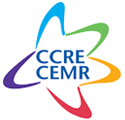
Denmark Unitary state
| DENMARK | / STRUCTURES |
Structures and competences
Local level :
98 municipalities* (kommuner)
The municipal council (kommunalbestyrelsen or byrådet) is composed of members elected by direct universal suffrage for four years and by a system of proportional representation. It is in charge of the municipal budget, the running of local institutions and the adoption of local policies.
The executive committees (kommunale udvalg) are in charge of local administration. The municipal council appoints the members of the executive committees for a period of four years. Permanent committees assist the municipal council in the preparation of its decisions. The council is obliged to set up a financial committee, but may also set up special committees such as the education, the employment, or the health and social affairs committees.
The municipal council also elects the mayor (borgmesteren) for four years. He/she heads the municipality’s administration as well as the municipal council.
*A new municipal structure was implemented in January 2007. The new structure reduced the number of municipalities but increased the overall sizes. This model requires municipalities to have a minimum of 20,000 inhabitants. Municipalities with a population of less than 20,000 are accepted as long as they establish a legally binding cooperation with a larger municipality.
COMPETENCES
- Primary education, including special education for adults
- Childcare
- Care for the elderly
- Social services: total regulatory, supply and financing responsibility
- Social psychiatry
- Health care preventive treatment, care and rehabilitation, home care and treatment of alcohol and drug abuse
- Integration of refugees and immigrants
- Environmental protection and waste management, water and preparation of local plans
- Unemployed service
- Assistance to the unemployed
- Economic development
- Culture and sports
- Local business service and local tourism
- Local roads
Regional level :
5 regions* (regioner)
The regional council (regionsrådet) is the region’s deliberative body and is composed of members elected by direct universal suffrage for a period of four years by a system of proportional representation. It can establish special committees, such as the hospitals committee, the regional development committee and the sustainability committee, which can be assisted by dedicated secretariats. The regional council also appoints its chairman.
The executive committees (udvalg) are composed of members elected by and from within the regional council for four years. They oversee the administration of the region and assist the regional council in the preparation and implementation of its decisions.
The chairman of the regional council (regionsrådsformanden) heads the council and region’s administration. He/she is elected from among the regional council’s members and is assisted by deputies also elected by the council.
Danish regions and the Island of Bornholm are also in charge of a regional growth forum, composed of representatives from the region, municipalities, local trade and industry, knowledge institutions and the labour market. Their mission is to foster optimal conditions for trade and industry in order to generate growth and development.
Greenland and the Faeroe Islands have an autonomous status. They both have their own government and legislative assembly*.
COMPETENCES
- Health care
- Hospital provision
- Health insurance
- Mental health treatment
- Social services and special education
- Regional development
- Business promotion
- Tourism
- Nature and environment
- Employment
- Culture
- Transport
- Soil pollution
* Since January 2007, a new regional structure was adopted replacing the pre-existing 14 counties with today’s five regions. The Danish regions now have between 0.6 and 1.6 million inhabitants.
The regions cannot levy taxes directly, but are financed through contributions from the state and the municipalities. The region’s economy is divided into three separate parts: health, social services, special education and regional development.
The Faroese Municipal Organisation (www.ksf.fo) has the status of observer to the work of CEMR.





